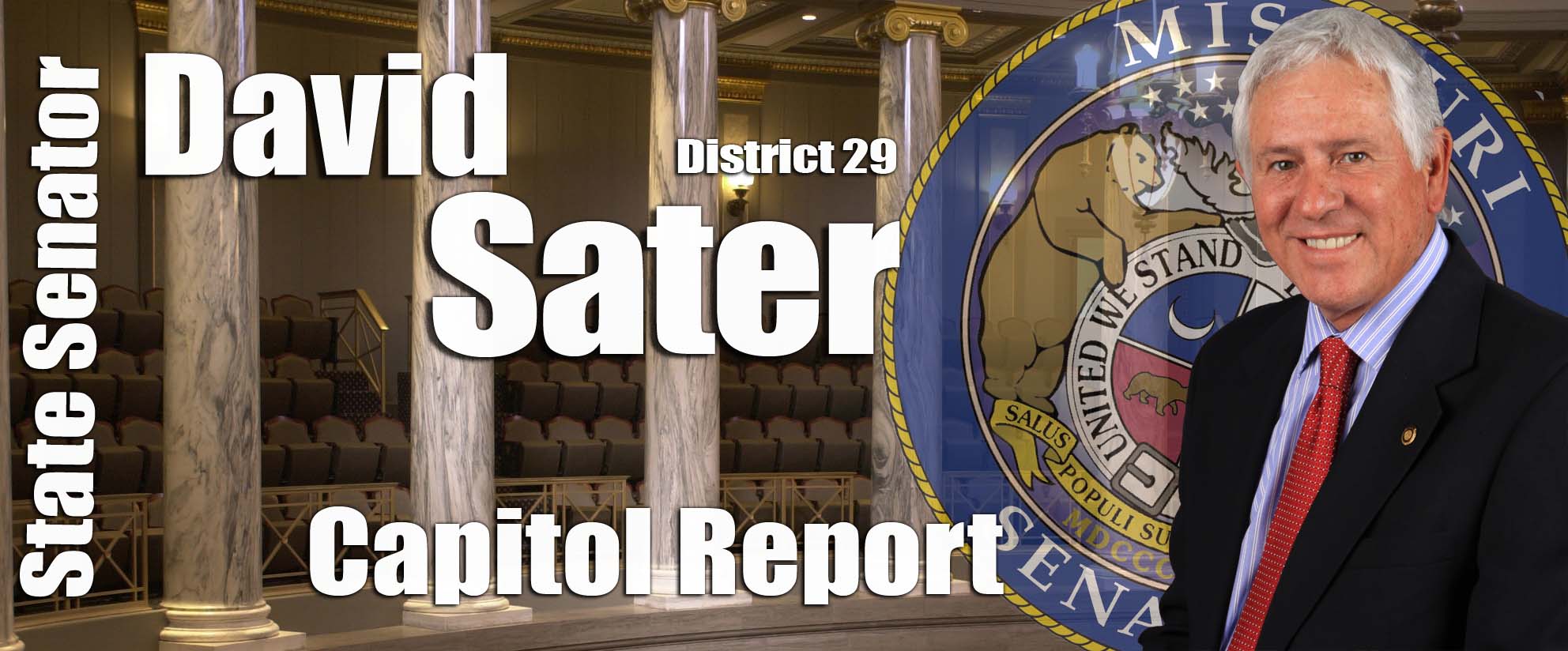
It’s something we often take for granted. We jump in our car or truck and head out to work or school, or we go to the grocery store and probably don’t think much about the road we are driving on, or the bridge we cross. Whether it is to deliver the products we buy at stores, the food we grow or the goods we manufacture, our transportation network is essential to our own lives and to our economy a whole.
Missouri currently has the seventh-largest road system in the country, and the sixth-highest number of bridges. This large of a network is a great asset. Missouri is a major nexus of trucking and transient in our country and we can get nearly everywhere in the state relatively quickly. However, it also requires maintenance and ongoing investment to ensure our road system is safe and meeting our needs. Missouri, with our seventh-largest road system, currently ranks 47th in funding. The national average of revenue spending per mile is $216,533. Here, it’s $50,766. That’s not to say we should only look at dollars and cents. Money isn’t the only measure of the condition of roads, but it does say something about where we are headed if we don’t act.
With all of this in mind, it bears to reason then that one of our first priorities, as a state, should be figuring out how we are going to fund transportation moving forward. There are a lot of ideas out there and a lot of opinions on the best way to do this. A few of those ideas we’ve seen on the ballot box during the last few elections. First, it was a 10-year, 3/4-cent sales tax increase in 2014 that voters rejected, and then — just last fall — it was a two-and-a-half cents per year gas tax increase for four years that also failed at the ballot. Other ideas include raising vehicle registration and titling fees, imposing a miles-driven fee or tax and tolling major roads. For one reason or another, each of these ideas has failed to gain the necessary support to get across the finish line.
Just because a solution that both addresses the problem and can pass is challenging, it doesn’t mean the problem is going away. It just means we have to work harder and think outside the box. One of those outside-the-box ideas is legislation that is making its way through the Missouri Senate. Senate Concurrent Resolution 14 is a bonding plan that would mete out about $300 million for bridge construction and repair over seven years. At the same time, about $50 million from next year’s budget would be specifically set aside for certain bridge projects in more urgent need of attention. To guarantee we are leveraging our state dollars as far they can go, the bonds would only be issued if the state can pull down federal matching dollars. Another safeguard for taxpayers is the seven-year term of the bond is down from the original 15-year proposal, which will save the state money in interest payments.
While it’s not ideal to borrow the funding we need for these bridges, the term of the bond does allow us to plan further out and get better prices for labor and materials. The plan will be paid for with existing state revenue without any new taxes or fees and will be paid off annually through our state budget. This is consistent with my view of government, that it should live within its means and that we shouldn’t go to the taxpayers every time there is a new need or expense. People should keep more of what they earn and government should figure out how to limit itself to its core functions and spend as little of the taxpayers’ money as possible.
Ultimately, we have a responsibility to take care of the roads and bridges we drive every day. This is one of those few core functions of government and we have to find a fiscally responsible way to do it. Doing nothing is not an option. People didn’t send me to Jefferson City to sit on my hands and wait. They expect action and they expect their elected officials to do their jobs. Debating ideas and finding solutions is how that gets done and that’s what we are doing right now with transportation funding.
As always, I welcome your ideas, questions and concerns. You may contact me at the State Capitol as follows: (573) 751-1480, david.sater@senate.mo.gov or by writing to Sen. David Sater, Missouri State Capitol, Room 416, Jefferson City, MO 65101.
God bless and thank you for the opportunity to work for you in the Missouri Senate.
